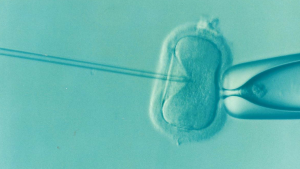Gosh, it’s been a long time since I last had a baby. Don’t worry, though – I’m not about to let you down now that my two-year-old is driving me crazy! In fact, I’m sure that as soon as she hits her teens (and hopefully before) she’ll be telling me how much better things were when she was young. But for now, we have an exciting new addition to our family: our daughter Ella Rose. And while I would never claim that babies are easy or straightforward – well, not compared with most other things in life anyway – there are some basic tips and guidelines which will help make your new bundle of joy feel more comfortable and secure during the early days of their lives:
The first weeks are all about Feed, Sleep and Change
The first weeks are all about Feed, Sleep and Change.
- Feeding: Babies need to be fed every 3 hours during the day and night. If your baby is not hungry or has started to vomit, you can give him/her a bottle of expressed breast milk (breast milk only). You should also make sure that your baby is always hungry by offering him/her frequent breastfeeding sessions at least once every two hours throughout the day.
- Sleeping: Babies should sleep between 8-12 hours per night for 6-8 weeks after birth before starting solids (food). During those early weeks it’s important to keep track of how much sleep your little one gets each day so that you know when he/she needs more rest or less rest based on his/her age
Feeding your baby
The first feeding is often the most difficult. If you’re breast-feeding, it can take some time to get used to how your baby prefers to be fed. Some babies will latch on quickly and easily, while others have trouble latching on at all or may only do so for a short period of time before falling asleep again.
If your baby doesn’t seem interested in nursing very often or refuses to latch on (or even appears uncomfortable), try other methods of feeding such as spooning or bottle-feeding with expressed milk from an electronic pump attachment (you’ll need one).
Burping Your Baby
When burping your baby after each meal: * Use a gentle patting motion instead of squeezing the belly button area where they’ll feel pressure if they’re not burped properly – this will help them feel satisfied without having gas build up in their digestive system that could lead towards colic symptoms later down the road!
Keeping your baby safe
- Keep your baby safe from pets.
- Don’t leave your baby alone with a pet animals like dog, cat etc.
- Don’t leave your baby alone with a rabbit or guinea pig, even if they’re siblings!
Baby’s Health
It’s important to take care of your baby. Babies can get sick and it’s important that you know how to help them if they do get sick. First aid for babies is a good idea, even before giving them any medication.
Sleep and settling
One of the best things you can do for your baby is to help them sleep. A good night’s rest is essential for their overall health and development, so it’s important that they get plenty of rest during their first few months.
Mum’s health after giving birth
You will be caring for your baby, and the health of mum is very important. Here are some tips to help you feel better:
- Take time to rest after giving birth. Your body needs rest to recover from the birth process, so make sure you get enough sleep each night. If possible, take a few days off work or don’t go back until you’ve rested properly (for example by sleeping on the couch).
- Eat well when eating is possible. This can be difficult if breastfeeding or bottle feeding isn’t an option yet – so try not to worry too much about it at this stage! Just eat as much as feels right in terms of how hungry/full/thirsty/etc., drink plenty of water throughout the day (and especially after exercise), don’t skip meals completely but also don’t overeat either – just enjoy whatever food comes along without worrying about whether it’s good enough for baby’s clever little tummy!
Breastfeeding a new baby can be difficult.
Breastfeeding can be a difficult experience. It’s important to remember that there is a lot to learn in the early days, and it may take time before you feel comfortable with breastfeeding your baby. You should also be prepared for some pain and stress during this period of adjustment, but remember that these feelings will pass once your baby learns how to latch on properly and feeds well.
There’s a lot to learn in the early days so give yourself time to adjust.
There’s a lot to learn in the early days so give yourself time to adjust. You are not alone, and you can ask for help from people who have experience.
If you’re feeling overwhelmed or confused by your baby’s needs, don’t be afraid to reach out to other parents with similar questions. They’ll be glad to help!
Conclusion
We hope this blog post has given you some ideas for how to care for your baby and help them get the most out of life. Remember that it’s not about having perfect babies but about having healthy ones who grow into happy adults. Remember that every little thing matters because one day this may be how they remember their parents in old age.
Takeaway: Baby is worth all the effort! Happy parenting!








